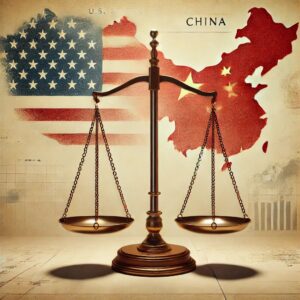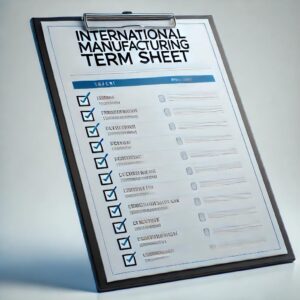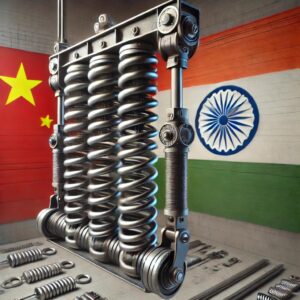China manufacturers are struggling with surging raw-material prices, supply-chain bottlenecks, and difficulty obtaining credit. But you probably already knew this.
When this happens, this always leads to an increase in manufacturer problems and our China manufacturing lawyers have been seeing a lot of that lately.
It is even more critical now than in good times that you conduct due diligence on your China manufacturer.
The bare minimum due diligence on your potential China manufacturing partner should include the following:
1. Obtain the Chinese manufacturer’s actual Chinese company name. This can then be verified by comparing it with the company’s business license.
2. Check with the official Chinese government registry to see if your Chinese manufacturer has actually been registered as a Chinese company.
3. Check your Chinese manufacturer’s capitalization to see if it is sufficiently large enough and well-funded enough to handle your proposed deal.
4. Check the Chinese company’s corporate officers and shareholders to see if they have any conflicts of interest by owning other companies. This is actually quite common and oftentimes explains why they are insisting on you using certain sub-suppliers.
5. Check the Chinese company’s current operational status: Open, Irregular Operations, or Revoked. I recently found that my client’s potential Chinese business partner’s company (unbeknownst to the client) had been placed on the “irregular operations” (经营异常名录) list by its district’s Market Supervision and Administration Bureau. The reasons for a company being flagged as such are often because of financial difficulties and mismanagement. You do not want to do business with such a company because the consequences of a company being flagged as having abnormal operations include:
-
-
- Banking accounts and activities being restricted or frozen.
- Services and licensing provided by government bureaus being restricted or prohibited.
- Administrative penalties being imposed. For example, a failure to notify the Bureau of a change in registered address carries a fine of RMB 10,000 to 100,000.
- The individuals in charge of the company being restricted. Additionally, if the company has been flagged for three years, it will be placed on the list of companies that have seriously violated the law (重违法企业名单).
-
We are seeing many more Chinese manufacturers being put on the irregular operations list than previously. Even scarier, we are also seeing an uptick in manufacturers on the “operations revoked” list as well. In International Manufacturing Update: China Down, Mexico Up, we explained how Chinese companies about to go bankrupt (and even already gone) will keep making product sales and simply pocket the entire payment:
Chinese factories have a strong incentive to make a fraudulent sales before shutting down so as to extract a profit from one or more foreign buyers. This profit is then pocketed by the managers who then disappear. This type of scheme has been employed almost as standard procedure in past economic downturns and there is no reason not to expect this type of fraud will be used in 2020. We wrote about the need to watch out for this sort of scam in China Business Scam Week, Part 2: Bricks for Products:
These things happen with companies that want to make a few final sales before they file for bankruptcy or just shut down and disappear. Just imagine the profits to be made from three $350,000 sales for which no product is ever provided. So just imagine the incentive for the owners of the Chinese manufacturing company to sell and not supply to foreign companies right before (or sometimes even right after) they shut their doors for good.
The China lawyers in my law firm call this the bricks for product scam because the first time we ever saw it was more than a decade ago when a U.S.-Norwegian fish company bought about a million dollars in fish from a Chinese company and every container consisted of a thin layer of fish wrapped around a core of bricks. The Chinese company that sent the fish for bricks had shut down and its managers had fled town and were nowhere to be found. Or at least that is what the local government told us. In that case (as in most that we see), there were plenty of warning signs, all of which were ignored.
The standard technique is to offer a discount for a larger than usual sale amount and then deliver nothing or almost nothing. Sometimes nothing at all is shipped. In other cases, a fraudulent shipment is made: a container full of bricks, barrels full of water or sand, or a refrigerated container full of rotten fish or fruit. By the time the foreign company discovers the fraud, the Chinese company (often a local SOE) has already been liquidated and its owners/managers have disappeared. Much of the time, little can be done.
However, if the Chinese company formally declares bankruptcy (which does happen) and if it has some assets left (which also does happen) and if you have a China-centric manufacturing contract (see On Trusting China Manufacturers. Don’t. Just Don’t.) you at least have a chance at getting some or all of your money back. Even better, of course, is to delay payment until after you have confirmed delivery of conforming product.
I got a call from someone just last week who was out a million dollars after having been convinced by its long-term China supplier to send money early so that it would have sufficient funds to make new product.
Way back in 2011, in China. Smells Like 2008, Gloom And Doom Edition, we wrote about how these “bricks for fish” scams pop up during China economic downturns:
Chinese companies that are going out of business or believe they are going out of business have an annoying tendency to ship bad or fake or no product at all. In 2008, pretty much every week we were getting calls from companies saying that the product they had ordered just was not coming. We handled one case where a company had bought about a million dollars of fish and received containers of cheap bricks surrounded by fish. That fake shipment was the dying gasp of a company that ceased to exist. We have started to get those same sort of calls in large numbers again.
6. Check to see if your Chinese manufacturing company is actually authorized by the Chinese government (per its business scope) to do the type of business it is proposing to do with you. In the United States, it is common for state law to authorize companies to be formed for “any lawful purpose” (or similar language). By contrast, companies in China must specify their intended business scope in their articles of association, and this scope is subject to approval by the registration authorities and if a Chinese company exceeds its scope, it is operating illegally.
7. Check the history of the Chinese company with which you might do business. Most fake companies do not bother to create a business history. If a company does not have a history you can verify, walk away.
8. Find out what the Chinese company owns by way of property and IP. Companies that own property and/or IP are much less likely to scam you than one that doesn’t.
9. Find out the company’s litigation history and whether and how often it is in trouble with the government. A company that is constantly getting fined by the government and/or constantly getting sued by its product buyers is not a good company with which to do business.
There are no guarantees in life, but as the old Russian saying goes, “Trust, but verify.” Or as we China lawyers say: do your due diligence first, and now more than ever.

























